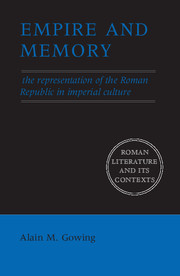3 - “Caesar, now be still”
Published online by Cambridge University Press: 02 December 2009
Summary
In the De clementia, addressed to the nineteen-year-old Nero, Seneca expresses relief that the freshly minted emperor has shown that he will not ‘forget himself’:
Magnam adibat aleam populus Romanus, cum incertum esset, quo se ista tua nobilis indoles daret; iam vota publica in tuto sunt; nec enim periculum est, ne te subita tui capiat oblivio.
The Roman people were taking a big gamble, since it was unclear where that noble talent of yours would lead; now the prayers of the people are assured, for there is no risk that you will suddenly forget yourself.
(Cl. 1.1.7)The De clementia, in which this passage appears, and the De beneficiis, the source of the passage quoted at the beginning of Chapter 1, are the two most substantial texts written by Seneca in the first couple of years of Nero's reign and prior to his retirement in ad 62; both most likely date to 55 and 56, the second and third years of the Neronian Principate. The De clementia, explicitly, and the De beneficiis, implicitly, offer advice to the young emperor. Whatever one may conclude about the nature and aim of that advice, Seneca considers what the emperor remembers – or forgets – to be of some importance. As it turns out, this is true not only of the emperor; Seneca regards memory as vital to individuals and society at large. But memory of what? At least in the case of the De clementia, Seneca is quite clear about this.
- Type
- Chapter
- Information
- Empire and MemoryThe Representation of the Roman Republic in Imperial Culture, pp. 67 - 101Publisher: Cambridge University PressPrint publication year: 2005



